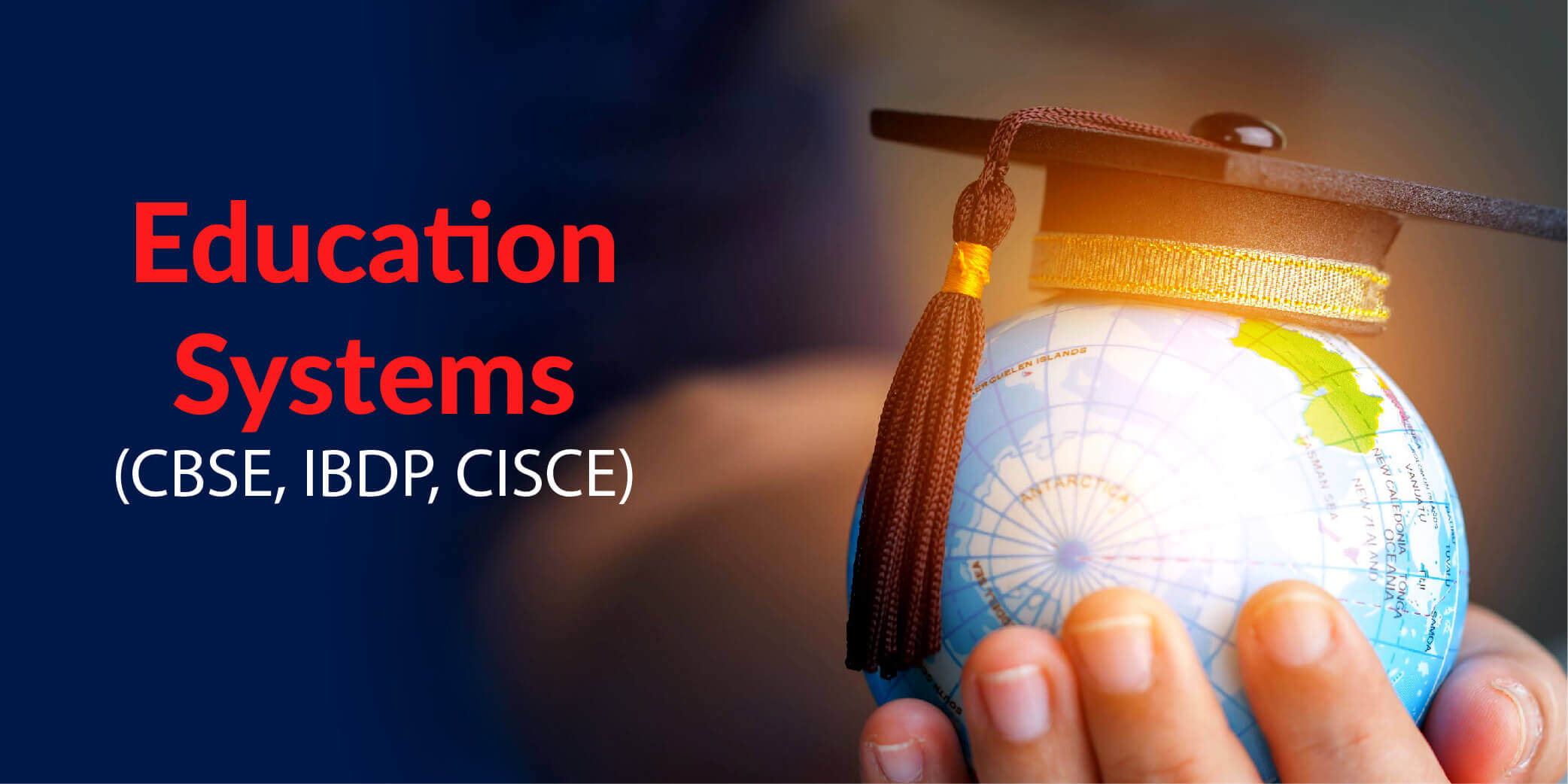
Education Systems
Through this blog, we aim to educate you about the various education systems. We will be telling you all about various systems like CBSE, IBDP, ISC and State Boards, among others.
Firstly let's discuss about what the term 'Education System actually refers to.
What is Education System? The 'Education System' refers to a group of establishments whose primary goal is to educate children. They are influenced by communication and the exchange of information, ideas, fundings, research, etc. by scholars, practitioners as well as governments.
Now let's talk about the different kinds of education systems.
Types of Education Systems CBSE The Central Board of Education is a national board of education that is prevalent in India. It is managed by the Union government of India and is for public as well as private schools. In India, final examinations are conducted for 10th and 12th grade students as per CBSE. All CBSE schools follow the NCERT (National Council of Educational Research and Training) curriculum. CBSE came up or was formed on 3rd November 1962, which is about 58 years ago. For more information and further details about CBSE, refer to the official CBSE website: https://www.cbse.gov.in/
The central headquarters of CBSE are located in New Delhi. CBSE conducts examinations for grades 10 and 12 every year in the month of March and the results are declared or announced in the month of May.
There are around more than 24000 schools in India that are affiliated with CBSE throughout the country and approximately 240 schools in about 26 countries all over the world.
IBDP The International Baccalaureate Diploma Programme (IBDP) is a two-year educational programme. It focuses on students that fall into the age criteria of 16-19 years. The program has a universally acknowledged qualification for advanced or higher education and is perceived by numerous colleges around the world. The IB Diploma Programme is designed as an academically challenging and balanced programme of education with final examinations that prepare students for success at university and life beyond.
There are IB World Schools in about 156 countries throughout the world, The IB board offers four educational programmes to more than 1.95 million students aged 3 to 19 across the globe. IBDP is widely accepted in the United States and is considered to be a 'college standard curriculum'. It has also proved to be a comparative asset for getting into Ivy League Universities like Harvard, Yale, etc. The official website for IBDP is: https://www.ibo.org/ CISCE CISCE refers to the Council of the Indian School Certificate Examinations which is a non- governmental board of education as per the Constitution of India that was formed about 62 years ago on 3rd November 1958. This Indian Council was set up because the need for a board was felt to manage the assessments being led in India by the University of Cambridge and to ideally tailor them as per the country's need. There are around 2300 schools that are affiliated to the CISCE in India as well as abroad.
The CISCE conducts two main examinations, namely: -The Indian Certificate of Secondary Education (ICSE) -The Indian School Certificate (ISC). Most commonwealth nations accept ISC results of students for admissions. This is the official CISCE website- https://www.cisce.org/
We hope this blog helped you understand a few education systems. Be sure to go through our other blogs for more information on other kinds of education systems that exist and also to get to know all about universities.


